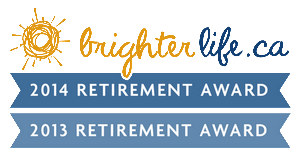Ever wonder, when looking back at your life, why it's easier to remember the good than the bad, the pleasant than the unpleasant, the laughs than the cries? Some could say that it's simply because there's always a lot more of the former. That may be true, in every life.
How do we allocate our time in life, assuming we live for the average age, which in Canada is 81.
We live a total of 29,565 days or 709,560 hours
of those we spend (on average);
206,952 hours sleeping,
88, 680 hours eating,
90,000 hours working,
10, 800 hours commuting,
7,200 hours in K to 12
21, 600 hours on social media
5,472 hours in quality time with family
312 hours in the hospital
65,688 hours watching TV
60,000 hours on the phone
2, 208 on the toilet
and the list can go on to include things that we do that are out of the realm of those who find statistics interesting. By the way, each of the above statistics was found by doing a google search. I find it remarkable that people study us that much.
The point is that we have very little time, so when we cast our minds back we remember the good times because they force their way through the routine of life into our long-term memory. As people, we move away from pain and toward pleasure which means that as we recall our lives, we remember the good times not the bad.
How do we allocate our time in life, assuming we live for the average age, which in Canada is 81.
We live a total of 29,565 days or 709,560 hours
of those we spend (on average);
206,952 hours sleeping,
88, 680 hours eating,
90,000 hours working,
10, 800 hours commuting,
7,200 hours in K to 12
21, 600 hours on social media
5,472 hours in quality time with family
312 hours in the hospital
65,688 hours watching TV
60,000 hours on the phone
2, 208 on the toilet
and the list can go on to include things that we do that are out of the realm of those who find statistics interesting. By the way, each of the above statistics was found by doing a google search. I find it remarkable that people study us that much.
The point is that we have very little time, so when we cast our minds back we remember the good times because they force their way through the routine of life into our long-term memory. As people, we move away from pain and toward pleasure which means that as we recall our lives, we remember the good times not the bad.
